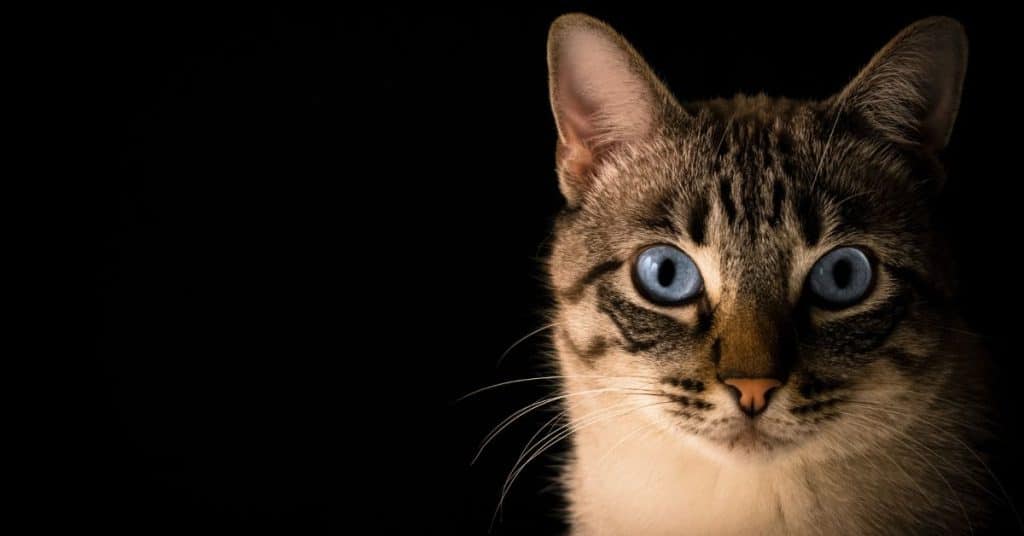As caretakers of our furry friends, we are faced with a variety of health-related dilemmas. First, taking care of your cat’s health and ensuring that they are getting enough nutrients is paramount. Some cats also have specific dietary needs to stay healthy. It is imperative to balance their food intake with the rest of their routines.
But when should you give your cat Vitamin K pills? This article has developed answers to your most common questions!
Let’s start!
Vitamin K in cats
British scientist William Roberts discovered Vitamin K in 1892. Upon discovery, he named it “Coagulation”. Vitamin K is a group of fat-soluble vitamins that help with blood clotting. Vitamin K can be found in plants and animals.
Green vegetables, such as spinach, contain Vitamin K. There are supplements available for Vitamin K1 (phytonadione) and K2 (menaquinone). Typically, it is prescribed to treat blood clotting problems or reverse warfarin’s effects on blood thinning. Several other conditions are treated with it, including osteoporosis, athletic performance, breast cancer, diabetes, and many others. Still, there is little scientific evidence to support using any of these treatments.
Cats utilize other compounds like lysine and methionine to create vitamin K. Deficiency in vitamin K increases bleeding risks. As well as addressing blood clotting, it is also known to keep the heart healthy and prevent bone fractures. Before invasive procedures such as liver biopsy or placing a feeding tube, supplementation may be needed with some liver diseases.
Vitamin K in Cats – How Much is Too Much?
Cats are carnivores and require a high protein diet, which is why they need to eat meat. Vitamin K is an essential nutrient for cats, as it helps with blood clotting.
If you are giving your cat a vitamin K supplement, ensure it does not exceed the recommended daily amount. Keeping the correct amount of vitamin K in your cat’s diet is critical because it can lead to significant problems.
When to Give a Cat Vitamin K Supplements?
The most appropriate time to give your cat a supplement is when you have just fed them their last meal for the day. You should also consider administering the supplements during the first week of giving them antibiotics or before getting a transfusion from another animal or human.
Vitamin K is essential for the health of cats. It helps prevent hemorrhages, blood clots, and bone fractures and keeps the heart healthy. However, cats don’t need to take vitamin K pills if they get their food from a pet food manufacturer that includes this nutrient in their food.
What foods provide vitamin K?
Natural sources of vitamin K include a wide variety of foods. Several foods contain vitamin K in recommended amounts, including:
- Leafy greens, such as spinach, kale, broccoli, and lettuce
- Oils from vegetables
- Figs and blueberries
- A variety of meats, cheeses, eggs, and soybeans
Are there any dietary supplements that contain vitamin K?
Supplements containing multivitamins and multi-minerals contain vitamin K. It may also be found in supplements that contain just vitamin K or combo supplements that include calcium, magnesium, and vitamin D. Phylloquinone and phytonadione are the two forms of vitamin K that are commonly found in supplements.
Giving the tablet to your cat
Tablets can be intimidating for anyone, but with some confidence and calm, it’s often more straightforward than you think. This guide will give you tips and tricks to help you accomplish this.
- It’s wise to ask your vet or check the manufacturer’s instructions on whether you can divide, crush, or administer the tablet with food.
- Secondly, find the simplest and easiest way to give your cat the tablet.
- Finally, maintain a calm and confident attitude at all times. In case of difficulty or difficulty managing, always contact your veterinarian or veterinary nurse at your local practice – they are there to assist you. Don’t forget to:
- Be prepared and ready in advance with everything you need
- Plan and have enough time to accomplish your goals
- Avoid putting yourself in danger by being gentle with your cat, remaining calm, and keeping your cool
- Whenever possible, have another person assist you with administering the tablet rather than mixing it with food. Select someone whom your cat is accustomed to already.

Giving the tablet with food
The first thing to check is whether the tablet can be taken with food. Some tablets can’t be included in food, so evaluate first. When it is safe to give food with it:
- Your cat should be hungry! To ensure your cat will eat, take all food away for 12 hours.
- You can try feeding your certain cat tablets that are specifically designed to be palatable for cats. Placing the tablet at the tip of your fingers rather than in your palm is essential. While tablets are often designed to be palatable, cats often won’t voluntarily take them because they are unfamiliar with their taste and texture.
- A small tablet may be concealed in your pet’s favorite food, such as soft pet food, soft cheese, a small piece of soft meat or fish, or a piece of butter.
- Your cat should be offered just a tiny amount of food with the tablet completely hidden or buried.
- In addition to the cat’s usual bowl, you can offer the food by hand/fingers, depending on your preference. If you plan to handle the tablet, take note of any precautions you need to take.
- You should ensure that the tablet is consumed along with the food if your cat eats it.
- It is not uncommon for cats to find tablets buried in food and spit them out or just eat the food around them. A small amount of tasty food can be mixed thoroughly with crushed tablets if it is safe. However, you should consult your veterinarian first. The best way to do this is to use palatable tablets and tasty treats your cat enjoys. Crushing the tablet thoroughly may be more convenient with a pill-crusher.
Vitamin K deficiency in cats
A fat-soluble vitamin, Vitamin K, plays a crucial role in the post-translational processing of prothrombin group coagulation factors (Factors II, VII, IX, X). Due to a lack of vitamin K, fibrin clots do generally not form, causing excessive bleeding. The severity and duration of vitamin K deficiency determine the type and severity of bleeding, which include prolonged bleeding from minor wounds, spontaneous hematoma formation, intracavitary hemorrhage, and death from blood loss. Cats and dogs suffering from severe vitamin K deficiency are most likely affected by anticoagulant rodenticide poisonings.
Vitamin K therapy
Taking vitamin K supplements improves hemostasis in patients who are vitamin K deficient. The use of vitamin K is often initiated before the results of a test are available. Still, it is not recommended for patients with thrombocytopenia, hereditary factor deficiencies, or diffuse inflammatory disease.
Dogs and cats often suffer from severe vitamin K deficiency due to anticoagulant rodenticide toxicities. In 24 to 48 hours after initiation of treatment, vitamin K reverses rodenticide’s anticoagulant effects. Other conditions where vitamin K deficiency can occur include biliary obstruction, intrahepatic cholestasis, intestinal malabsorption, and chronic antibiotic use.
Conclusion
Vitamin K is healthy for cats. Thanks to its role in blood clotting and bone formation, Vitamin K can help prevent dangerous blood clots and bruising. Cats with low levels of Vitamin K may have an increased risk of developing a disorder that can lead to death or severe damage to the lungs, heart, or brain. The right amount of it must therefore be added to their diets. Also, don’t forget to consult your veterinarian!
Frequently Asked Questions
Where is vitamin K found?
The following foods are rich in vitamin K: green leafy vegetables such as spinach, kale, collards, Swiss chard, mustard greens, parsley, romaine, and green leaf lettuce. Vitamin K is also present in vegetables such as Brussels sprouts, broccoli, cauliflower, and cabbage, and it can also be found in fish, liver, meat, eggs, and cereals.
What causes vitamin K deficiency in cats?
Anticoagulant rodenticides frequently poison cats and dogs with severe, acute vitamin K deficiency.
How do you give a cat vitamin K?
The typical dose of anticoagulant rodenticide is 1 to 3 mg per pound (2 to 6 mg/kg) per day. This is often split and given in two or three equal doses during the day. You must continue vitamin K1 treatment while the rodenticide is present in your body.
What does vitamin K do in animals?
It is critical to provide adequate vitamin K to the liver so that it can be used by the animal optimally for the synthesis of plasma proteins dependent on vitamin K in blood clotting and perhaps also for the synthesis of other essential proteins.
What is causing my cat’s blood not to clot?
During an injury, cats with hemophilia fail to clot appropriately because of rare hereditary bleeding disorders. Whether inborn or acquired, hemophilia is a severe condition.
How do animals get vitamin K?
The best source of vitamin K is green leafy vegetables. Other foods containing vitamin K are liver, meat, milk, and egg yolks.
Can too much vitamin K cause blood clots?
It is often assumed that increasing vitamin K intake may increase thrombosis risk due to the primary deficiency disease associated with vitamin K, a bleeding disorder caused by impaired blood clotting. There is no evidence for this claim.
